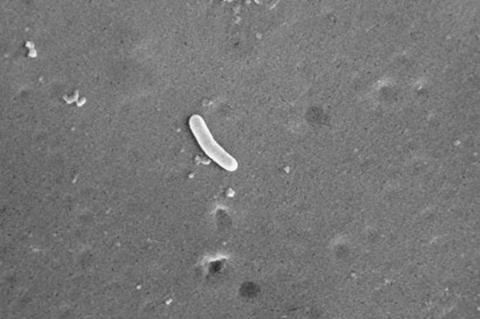Determining whether a cancerous tumor originated in a given location or spread there from another tissue or organ in the body is important when assessing the likely course of a patient’s disease. When the origin of the primary tumor cannot be identified, it can be challenging to properly diagnose the malignancy and determine the best treatment strategy.

Now, researchers at University of California San Diego have identified a microbial DNA signature in blood plasma that reliably differentiates primary liver cancer from colorectal cancer that has spread to the liver (metastatic colorectal cancer).
“The use of microbial DNA signatures could open up a new diagnostic pathway, especially in situations where radiographic imaging is ambiguous or not accessible,” said Amir Zarrinpar, MD, PhD, professor in the Division of Gastroenterology & Hepatology at UC San Diego School of Medicine.
READ MORE: Tracking microbial rhythms reveals new target for treating metabolic diseases
READ MORE: New findings may fix the replicability crisis in microbiome research
The researchers isolated cell-free DNA (cfDNA) — fragments of DNA from dead cells that are found in bodily fluids — from the blood plasma of 16 patients diagnosed with primary liver cancer and 11 patients diagnosed with metastatic colorectal cancer.
Revealed by DNA
A metagenomic analysis revealed that:
- The microbial cfDNA classifier distinguished primary liver cancer from metastatic colorectal cancer with 90% accuracy.
- Microbes predominantly found in patients with primary liver cancer included Pseudomonas aeruginosa, Corynebacterium accolens and C. glucuronolyticum.
- Microbes predominantly found in patients with metastatic colorectal cancer included Acinetobacter tandoii, A. tianfuensis, A. septicus, A. parvus, Pseudomonas asiatica and Bifidobacterium faecale.
- Microbial species that were found more in primary liver cancer patients are known to be associated with immunocompromised patients, liver transplant complications and antimicrobial defense, whereas microbial species found in metastatic colorectal cancer are known to be associated more with hospital-acquired infections, bloodstream infections and gastrointestinal inflammation.
While larger studies are needed, the findings support growing evidence of the microbial involvement in cancer biology.
“This is one of the first studies to show that microbial DNA in blood may be used to non-invasively distinguish tumor origin without the use of machine learning or artificial intelligence, particularly between two common liver pathologies,” said Zarrinpar.
Clinical applications
The research has potential clinical applications including early cancer detection and monitoring of high-risk patients, and could contribute to the development of microbial DNA-based biomarkers for diagnosis and microbiome-based cancer therapies.
The study was published in eGastroenterology on August 14, 2025. This research was funded by the Prevent Cancer Foundation, the National Cancer Institute and UC San Diego Moores Cancer Center.
Topics
- Acinetobacter tandoii
- Amir Zarrinpar
- Bacteria
- Bifidobacterium faecale
- Cancer Microbiology
- Clinical & Diagnostics
- Corynebacterium accolens
- Corynebacterium glucuronolyticum
- Infectious Disease
- Medical Microbiology
- metastatic colorectal cancer
- One Health
- primary liver cancer
- Pseudomonas aeruginosa
- Pseudomonas asiatica
- Research News
- University of California San Diego
- USA & Canada







No comments yet